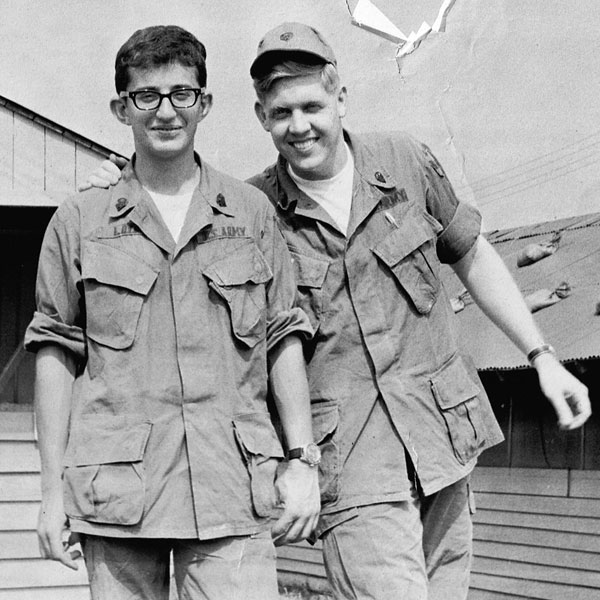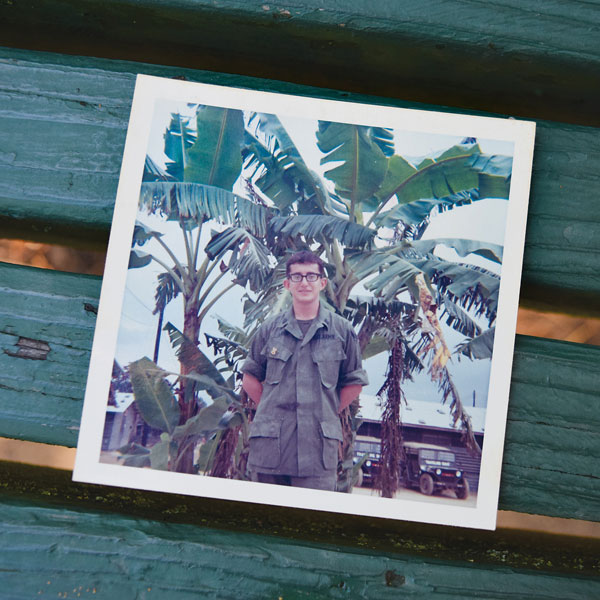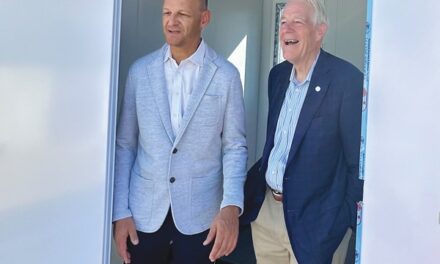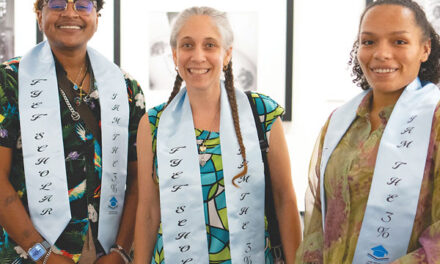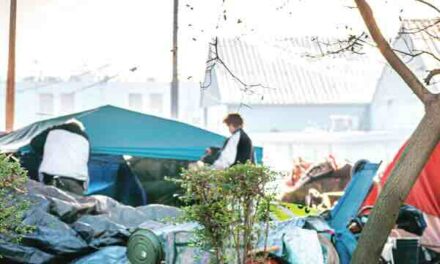Never Forget
For this veteran, Vietnam taught life lessons
By Elliott Loyd
November 2019
Publisher’s Note: I’m taking a month off my column and offering instead this beautiful tribute from a local veteran to celebrate Veteran’s Day on Nov. 11.
In honor of Veterans Day, I offer a “soldier’s story” of life in the United States Army during the Vietnam War. My experience exemplifies a time shared by millions of other young men and women who served honorably—and is a tribute to those who no longer have a voice.
I served a 14-month tour in Vietnam, from Dec. 13, 1968, to Feb. 17, 1970. My unit was First Field Force Vietnam, 6th Battalion, 84th Field Artillery, stationed in An Khe in the Vietnam Central Highlands. Midway through my tour, I was transferred to Nha Trang.
From my hometown of Fairfield, I entered the Army on July 17, 1968. I said goodbye to my girlfriend and was off to boot camp at Fort Lewis, Wash. Our drill sergeants were Vietnam combat veterans—young, tough and no-nonsense. They instilled the importance of learning what they taught. Our survival was at stake.
After boot camp, I received orders for Fort Sill, Okla., for Advanced Individual Training in artillery. We trained on howitzers. When we finished around mid-November, we were given 30-day leaves to return home before reporting to our duty assignments. About 95 percent of us were heading to South Vietnam.
Sure enough, back in Fairfield with orders to report to Vietnam, my family took me to the airport at Travis Air Force Base. The terminal overflowed with young soldiers and marines. My mother and father put on brave faces, but my cousin broke down in tears. As a “tough” soldier, I did my best to reassure my family I would return home safely.
Passengers on the Flying Tiger Airlines flight were young soldiers like me, mostly privates in new Army dress green uniforms. The flight seemed to last forever, but the stewardesses were especially nice. They knew some of us would not return.
At last, we arrived at Tan Son Nhut Air Force Base. Stepping off the plane, we were blasted with intense heat. It must have been 120 degrees with 90-percent humidity. Also greeting us was the exotic smell of nuoc mam, a Vietnamese fish sauce. Adding to the sense of foreboding, we were loaded on buses with bars over the windows. We were green but not stupid—we realized the bars were to prevent grenades from being thrown inside.
The buses took us to the processing center where we exchanged dress uniforms for jungle fatigues, caps and boots. We slept in tents on hard cots, drank lukewarm water from giant suspended bladders, exchanged stories and milled about until we received our orders.
After two days at the center, those of us assigned to units near An Khe in the Central Highlands boarded a plane. When we landed, we noticed suntanned, slender young soldiers dressed in faded fatigues waiting on the tarmac. It was clear these troopers had completed their tours and we were their replacements. The homebound soldiers had helped repulse the all-out North Vietnamese Tet Offensive that began in January 1968.
The Tet Offensive ended in September, but no one wanted a repeat of that costly surprise attack. Veterans in my unit were adamant about keeping our helmets, flak jackets and weapons ready. There were false alarms. I thank my lucky stars they weren’t real.
Today, I look back and relive a kaleidoscope of experiences shared by many veterans: the weight of a flak jacket; the sound of incoming mortars; the eerie light of a flare illuminating the night sky; the sound of a helicopter; the weeping, inconsolable, young pregnant widow of a South Vietnamese soldier killed in action.
I recall the awe of seeing a Huey helicopter gunship raining down firepower and feeling sympathy for enemy soldiers on the ground below; the graceful, young Vietnamese women with their shy smiles in traditional ao dai dresses; the black pajamas and conical straw hats of peasant women.
Yes, there were hardships and danger, but also good times shared with other troopers. Compared to the dangers and hardships faced in the military, civilian complaints seem petty to most veterans. Returning from developing nations, veterans realize most Americans have little concept of how well off they are.
As a United States Army Vietnam veteran, I salute veterans of all military branches who served honorably in Iraq and Afghanistan. It is heartening to see the American public treat service members returning from overseas with respect. During the Vietnam War, this was not always the case. Suffice to say, it was a different era and mindset.
The Vietnam experience was not something I volunteered for. However, I do not regret it. Although it came with a price, I value it highly. Serving in the military taught me the value of hard work, discipline and teamwork. Overseas service opened my eyes to the challenges faced by developing countries, and to the knowledge that people from other cultures share our hopes and dreams.
Readjustment to civilian life is difficult for many veterans. Civilians have a hard time understanding that when one joins the military, it’s not just an occupation. It’s a way of life.
Especially in a war zone, the service member is on call 24 hours a day. And it’s more than that. It’s an attitude. Once you get on that airplane or ship headed for the war zone, the dice have been rolled. You accept your fate. It takes real courage to do that.
Those who have made that decision in the past and those who will make it in the future deserve to be celebrated by a grateful nation. They are warriors.
Elliott Loyd can be reached at elliottloyd@comcast.net.



